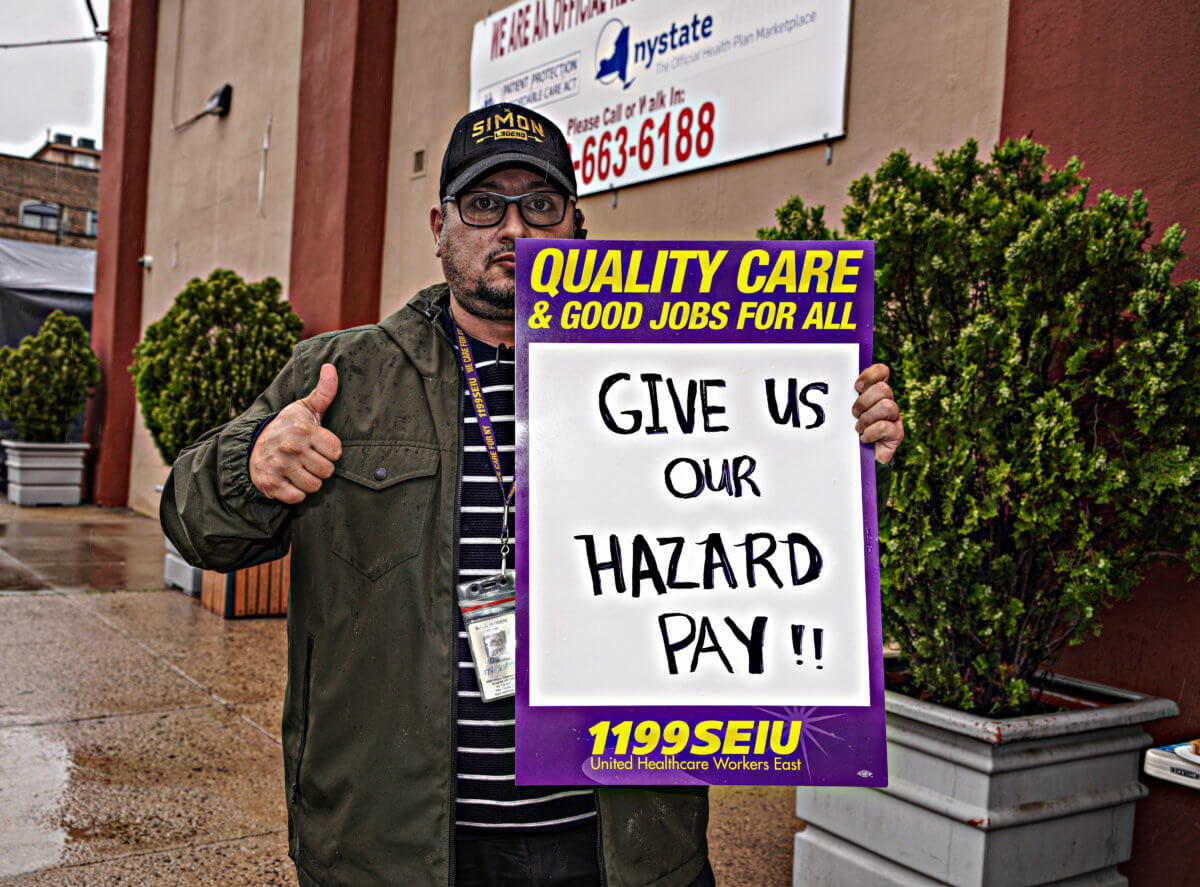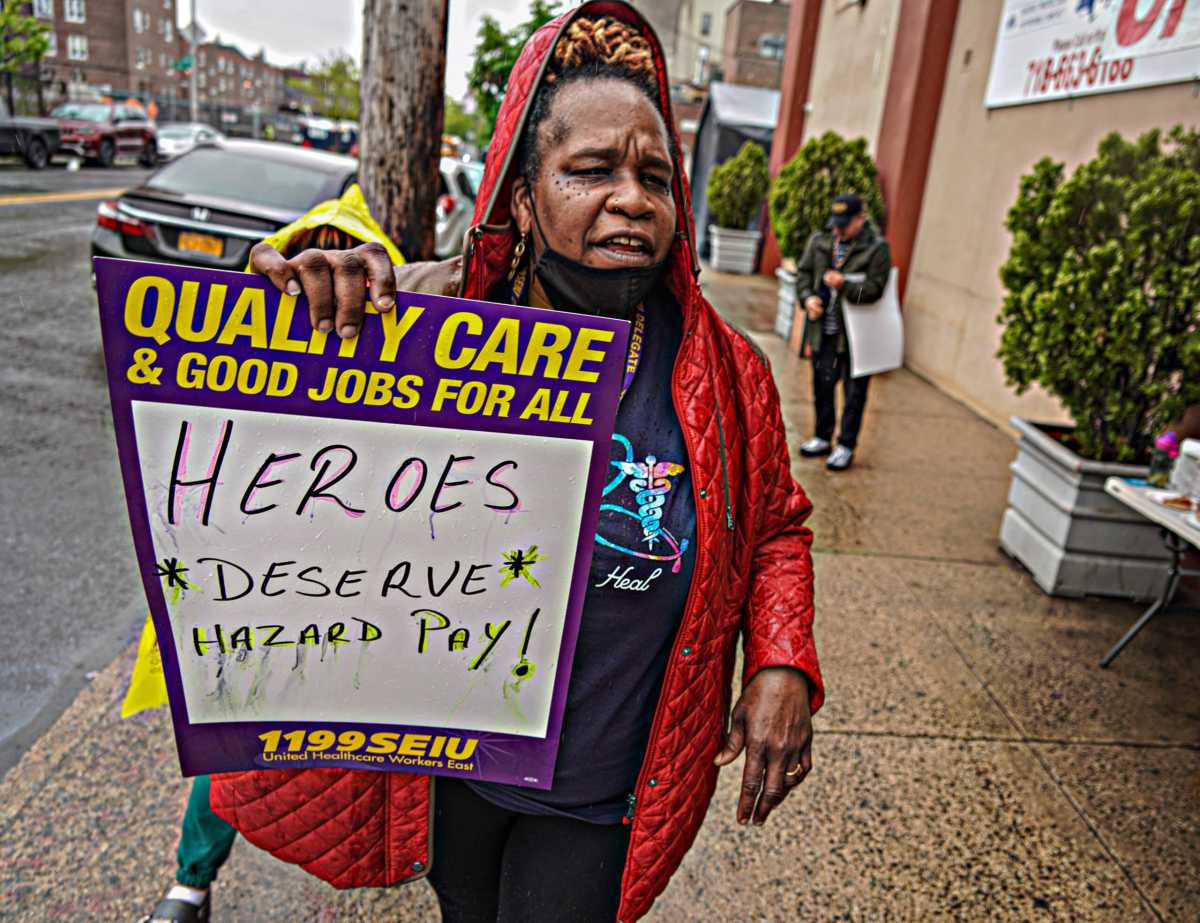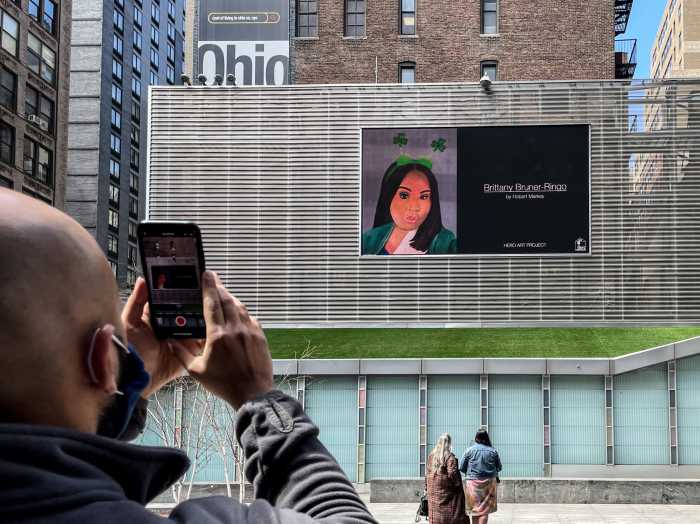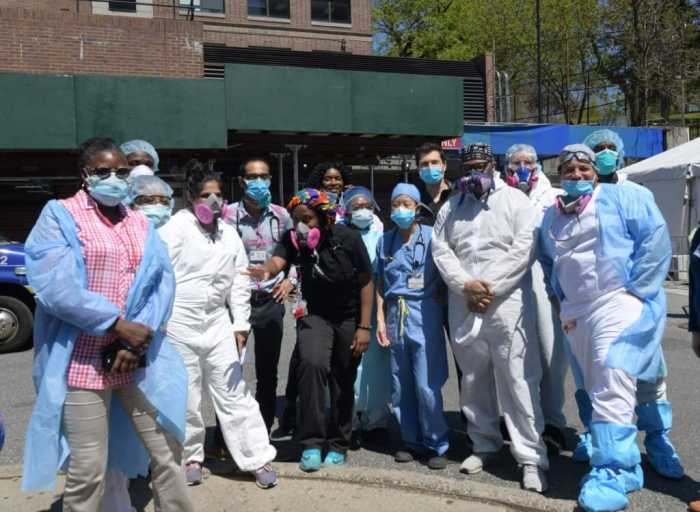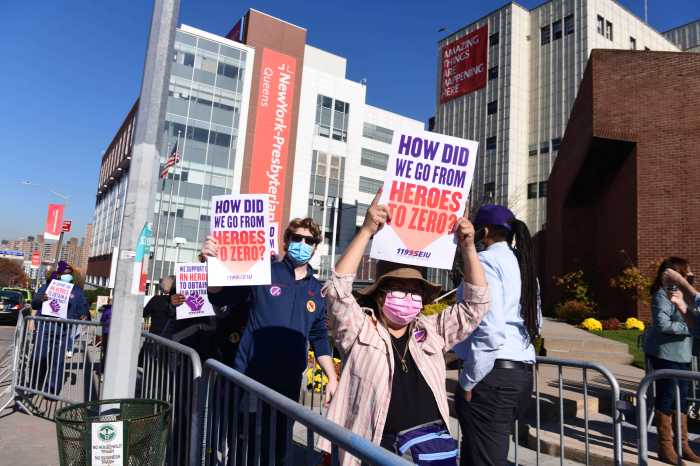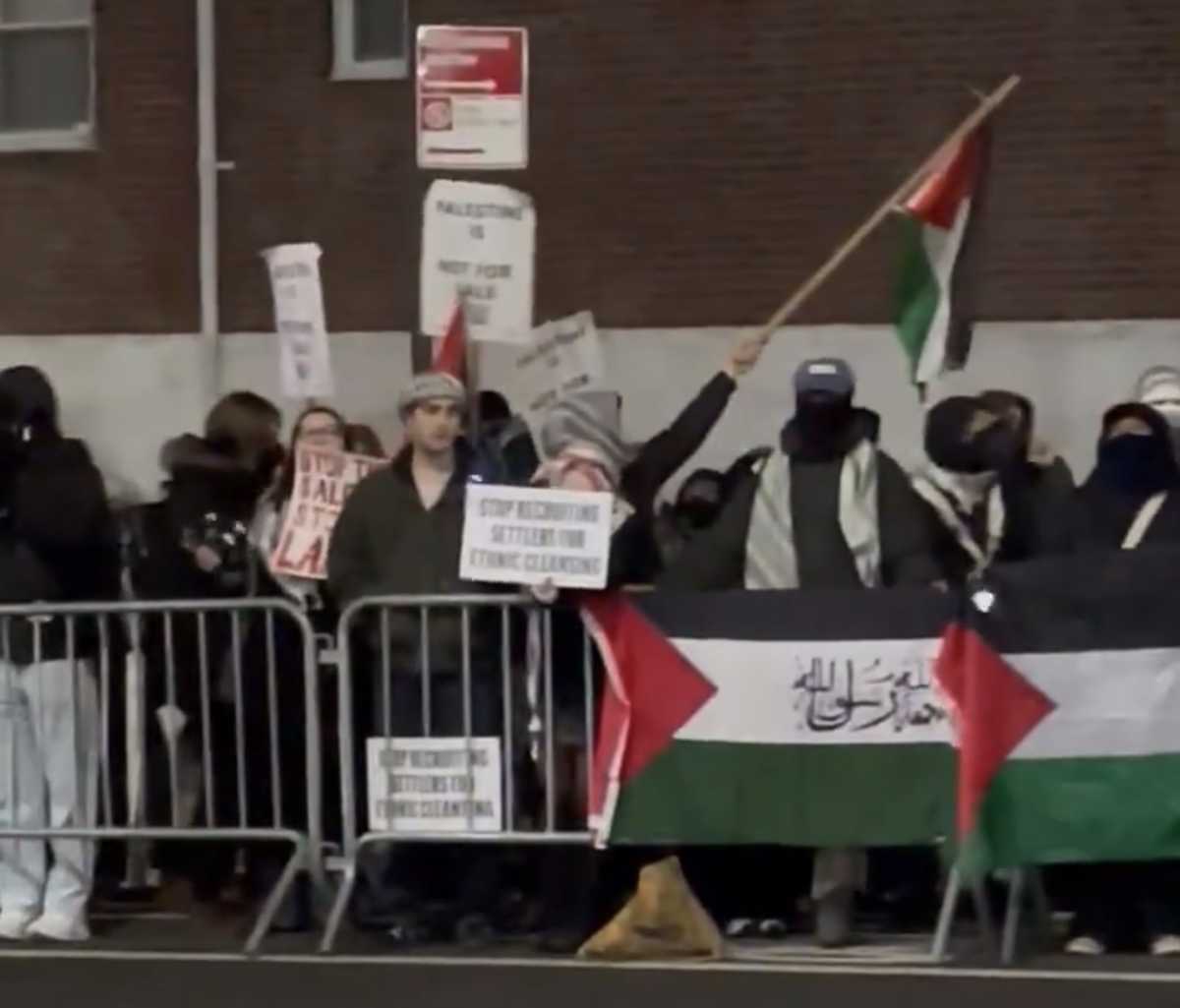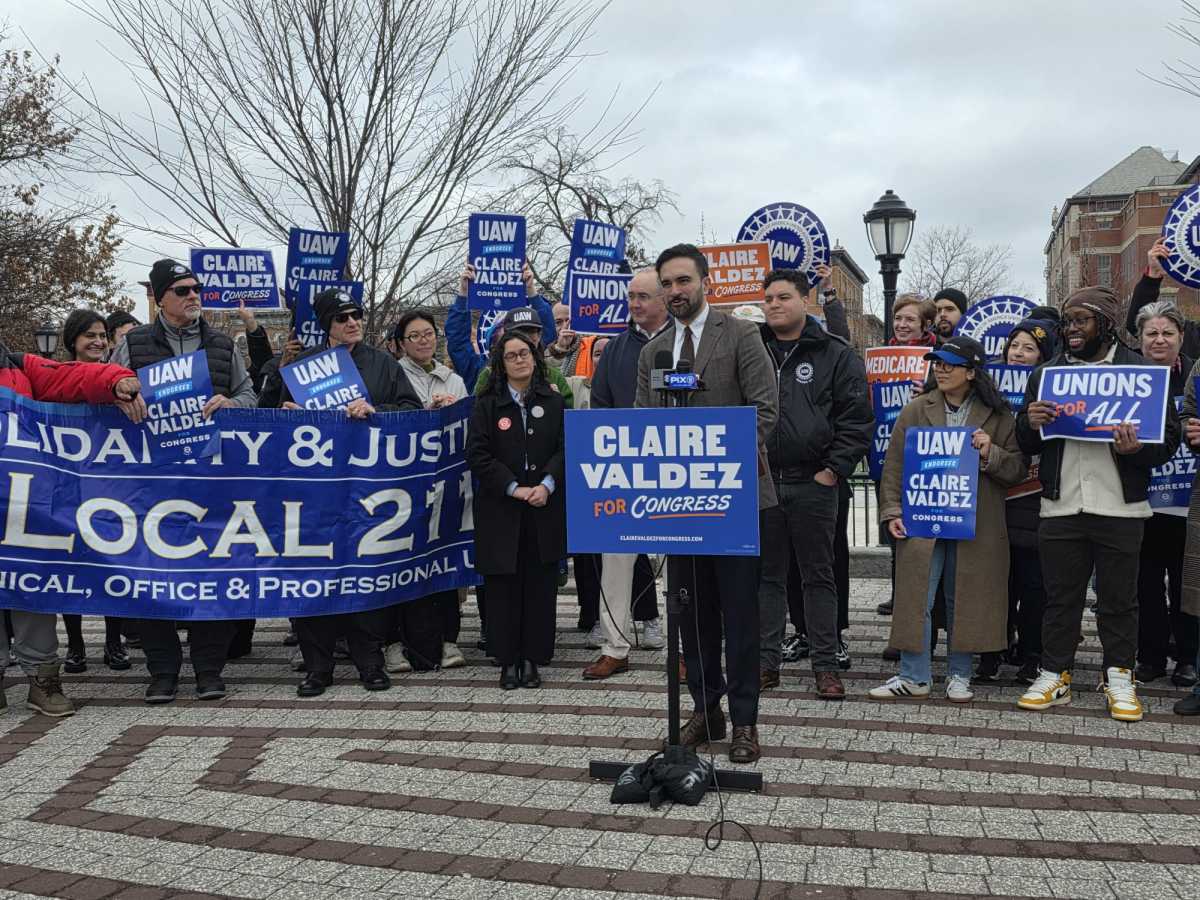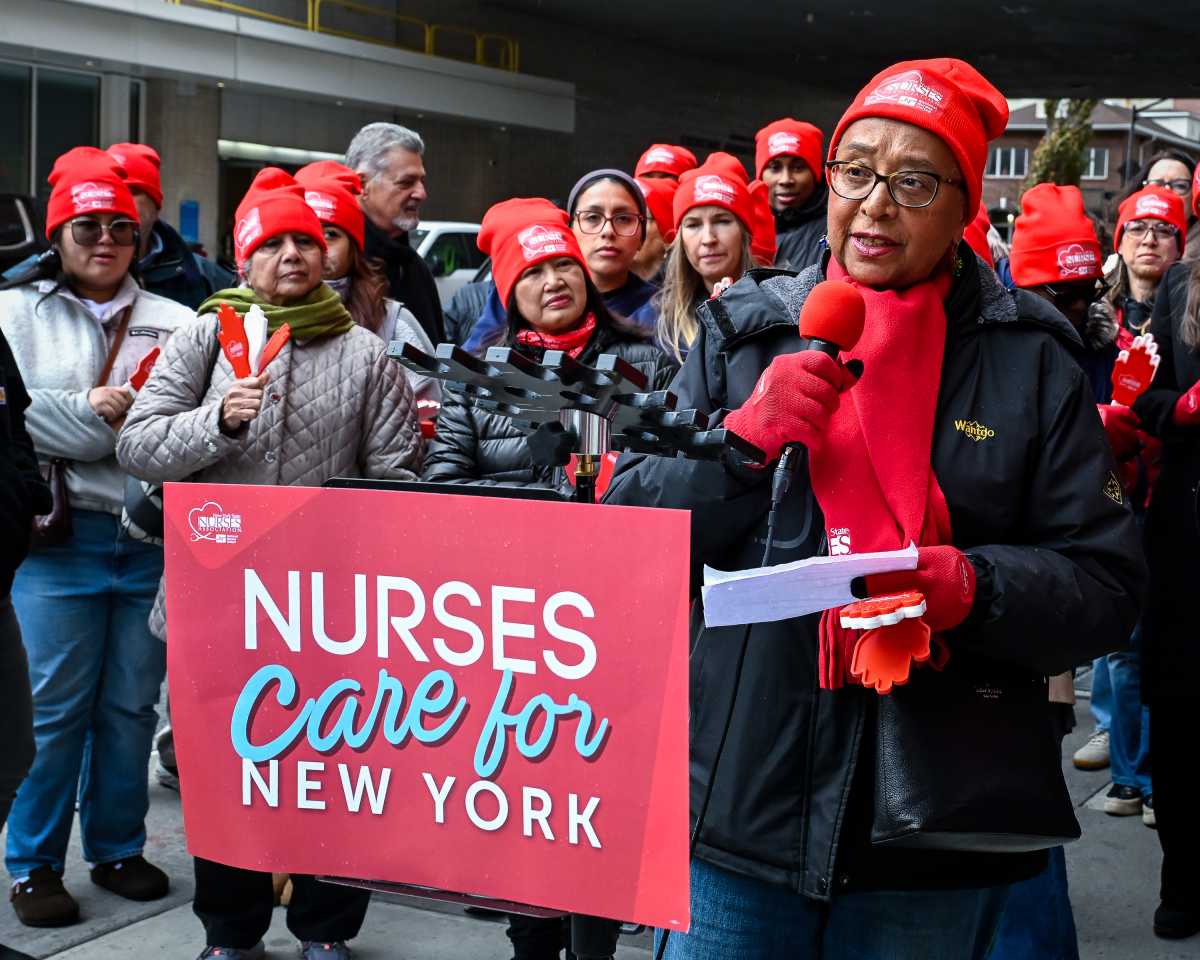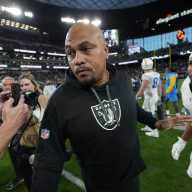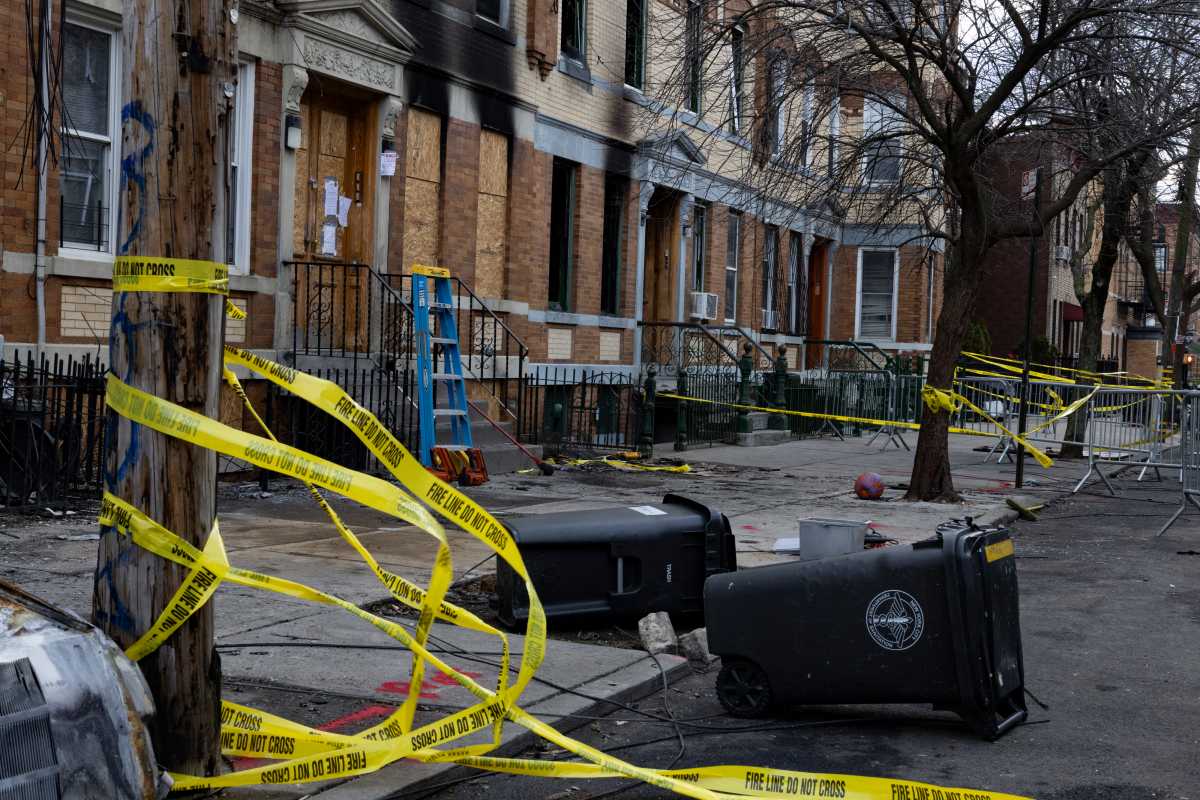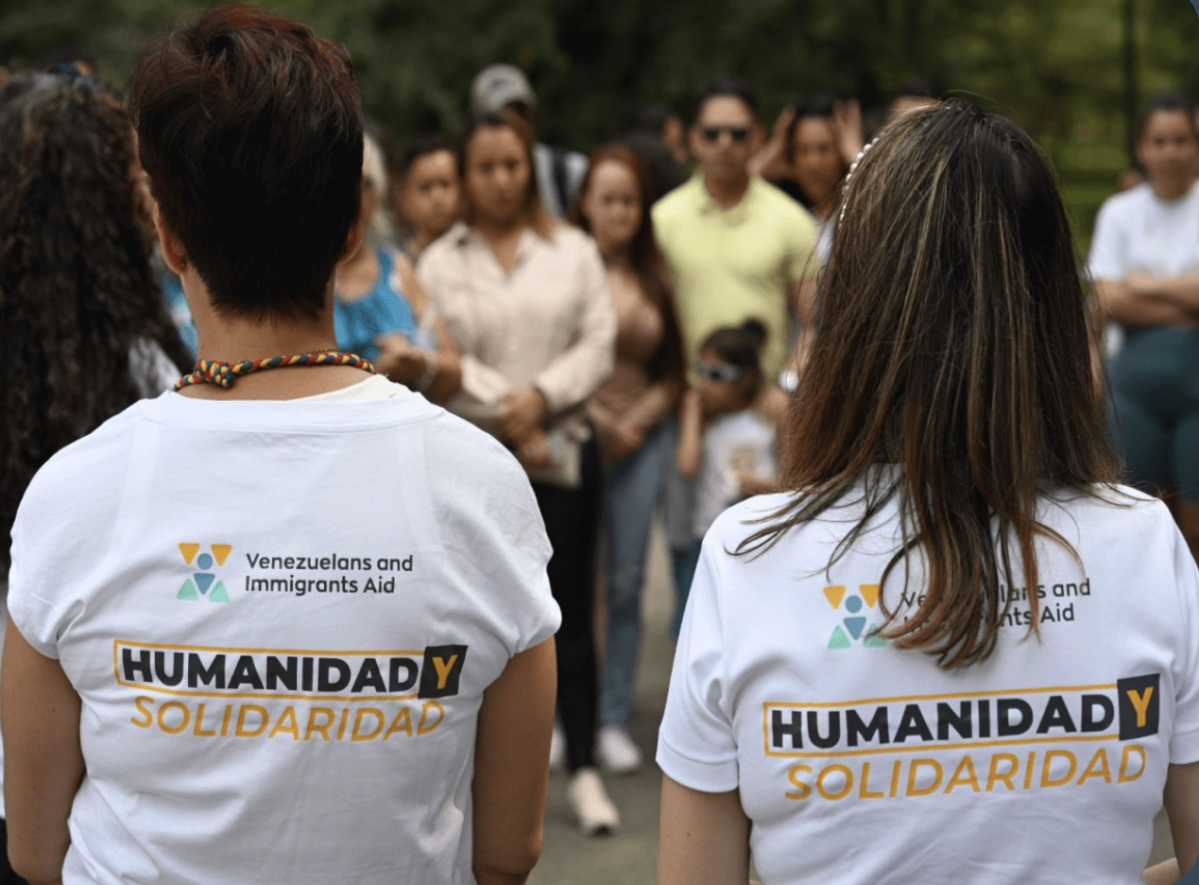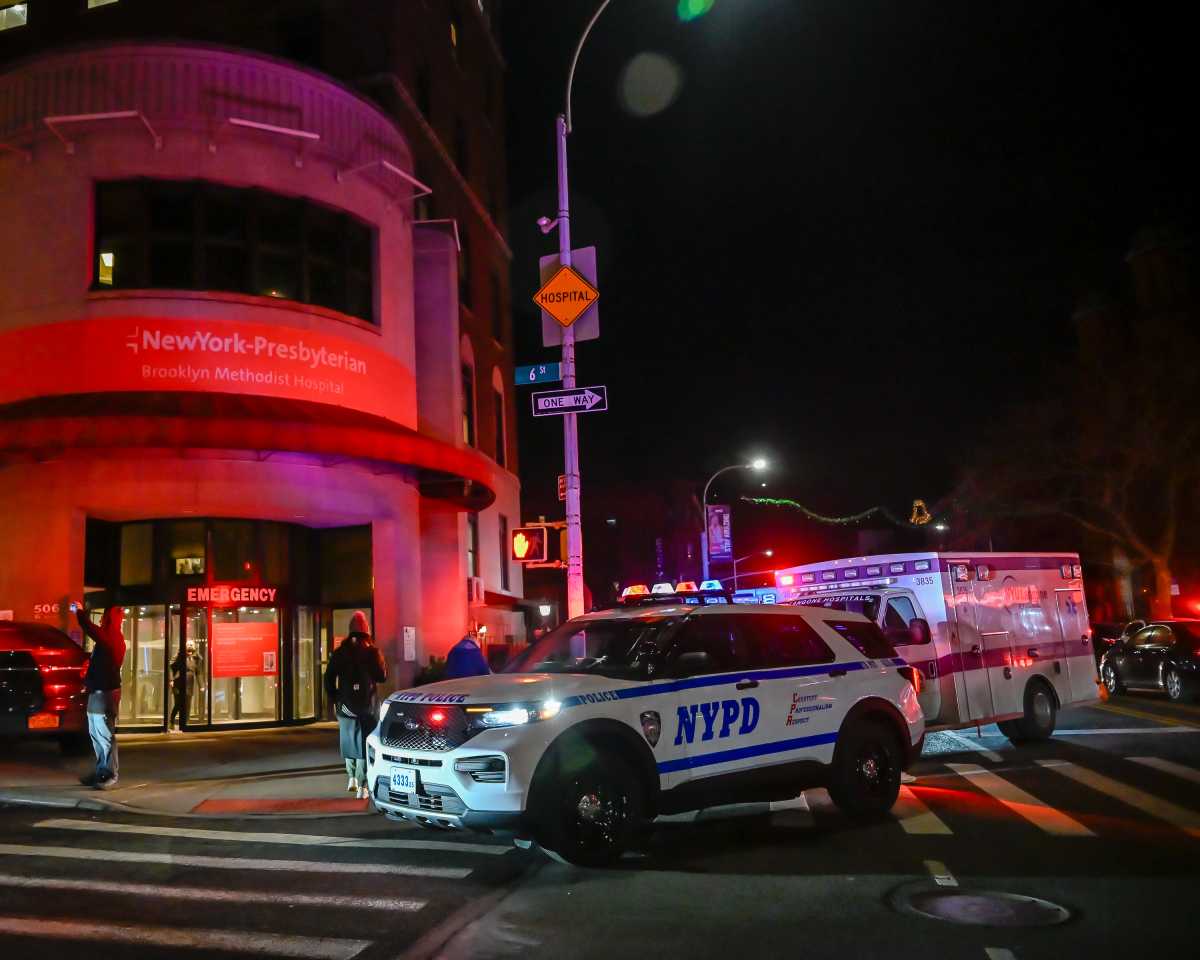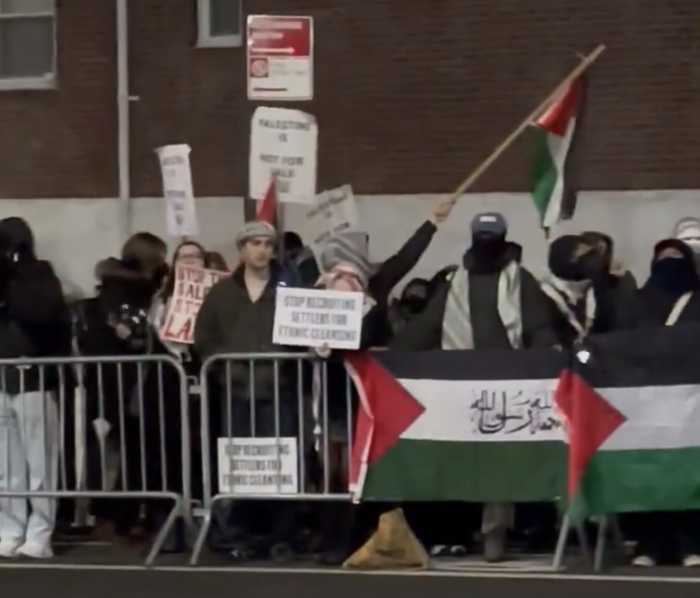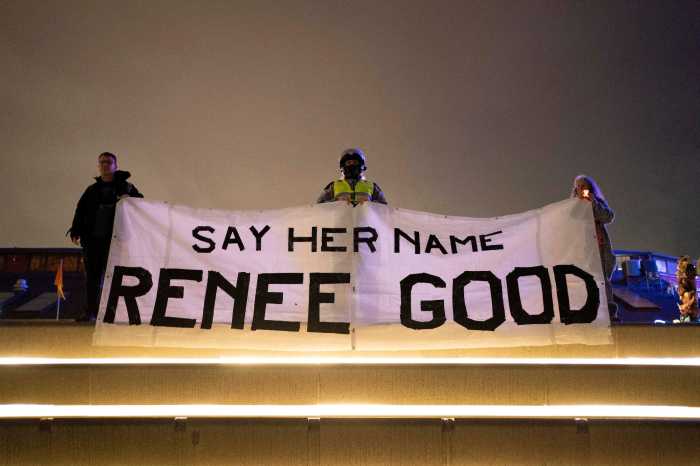Nurses Week is off to a rocky start as healthcare heroes fight for hazard pay.
Many swiftly stand up and applaud essential workers and healthcare heroes but when it comes time to show meaningful thanks through monetary value, the line of supporters sharply dwindles. Several of those who have been risking their lives during the COVID-19 crisis are tired of waiting for what they believe they have earned. Throughout Queens and Brooklyn, dozens of 1199SEIU workers stepped out of their medical facilities and demanded their share.
Medical personnel, maintenance staff, and receptionists gathered outside of the Joseph P. Addabbo Family Health Center at 120 Richards Street in Brooklyn to rally for hazard pay (some workers also picketed at four other Addabbo Health Center locations in Queens.) During a heavy noon downpour, the workers took signs scrawled with their appeals and circled the entranceway chanting “What do we want? Hazard pay!” Although the deluge batted their plastic ponchos and sent the ink on their signs dribbling, their spirits remained high, motivated by what some called a slap in the face.
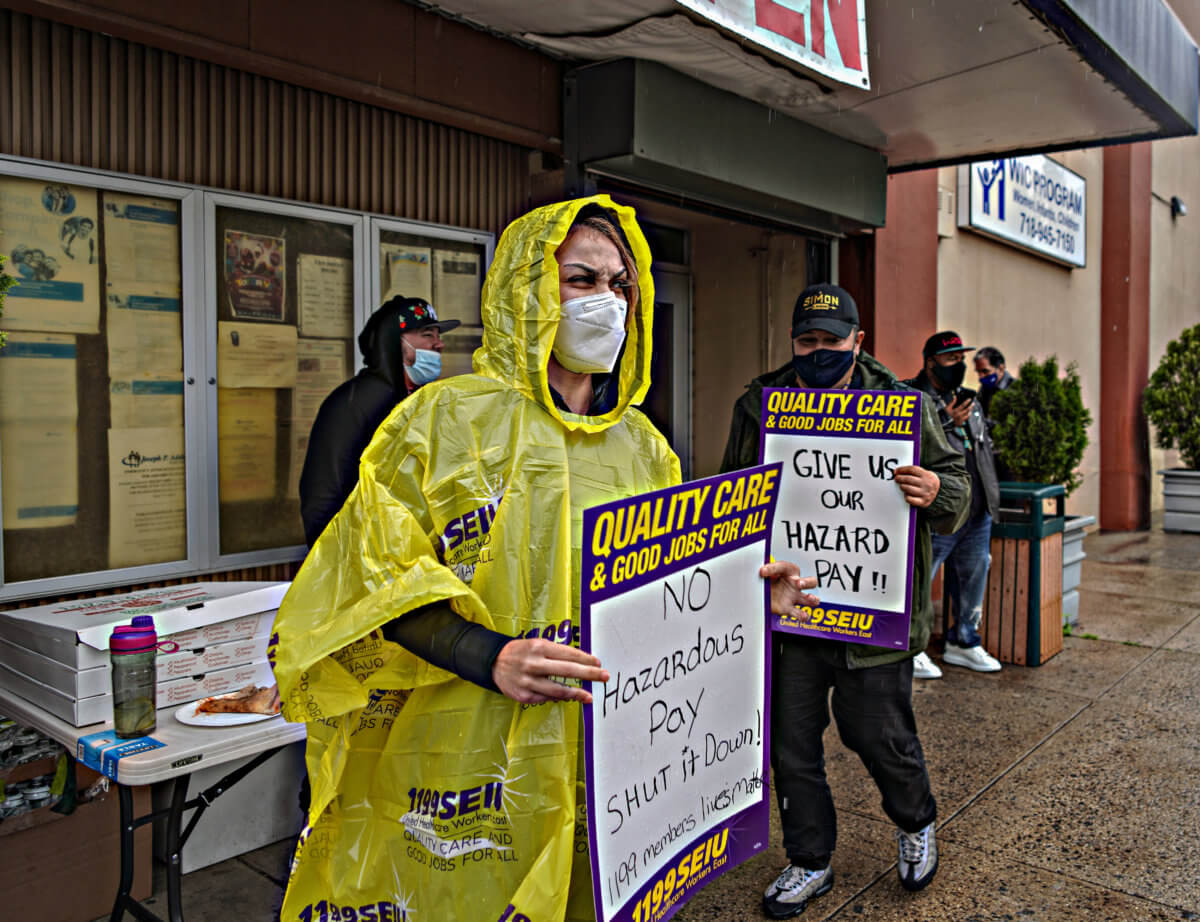
Carolyn Fortune, a nurse at Joseph Addabbo Family Health Center in Carroll Gardens told amNewYork Metro money had been allocated to the hospital, but when she requested hazard pay the frontline worker says she was given the shocking repose of stating the organization needed to pay for the power bill.
“We were told by administration, Miriam Vega, that they had to pay the lights. That’s why we are out here. We are outraged that the lights were more important than giving a couple of dollars of hazard pay to employees at Addabbo Family Health Center. That’s a slap in the face,” Fortune said.
Fortune cited tough working conditions, including being short-staffed and watching colleagues grow ill from the deadly virus, but despite serving the community she was born and raised in, she says the only thanks she got came on a piece of paper.
“I will tell you what we did get, we got a certificate of thank you. A piece of paper with embroidery around it. Every member whether it was doctors, nursing staff, everybody received that in lieu of getting hazard pay,” Fortune said, still fuming.
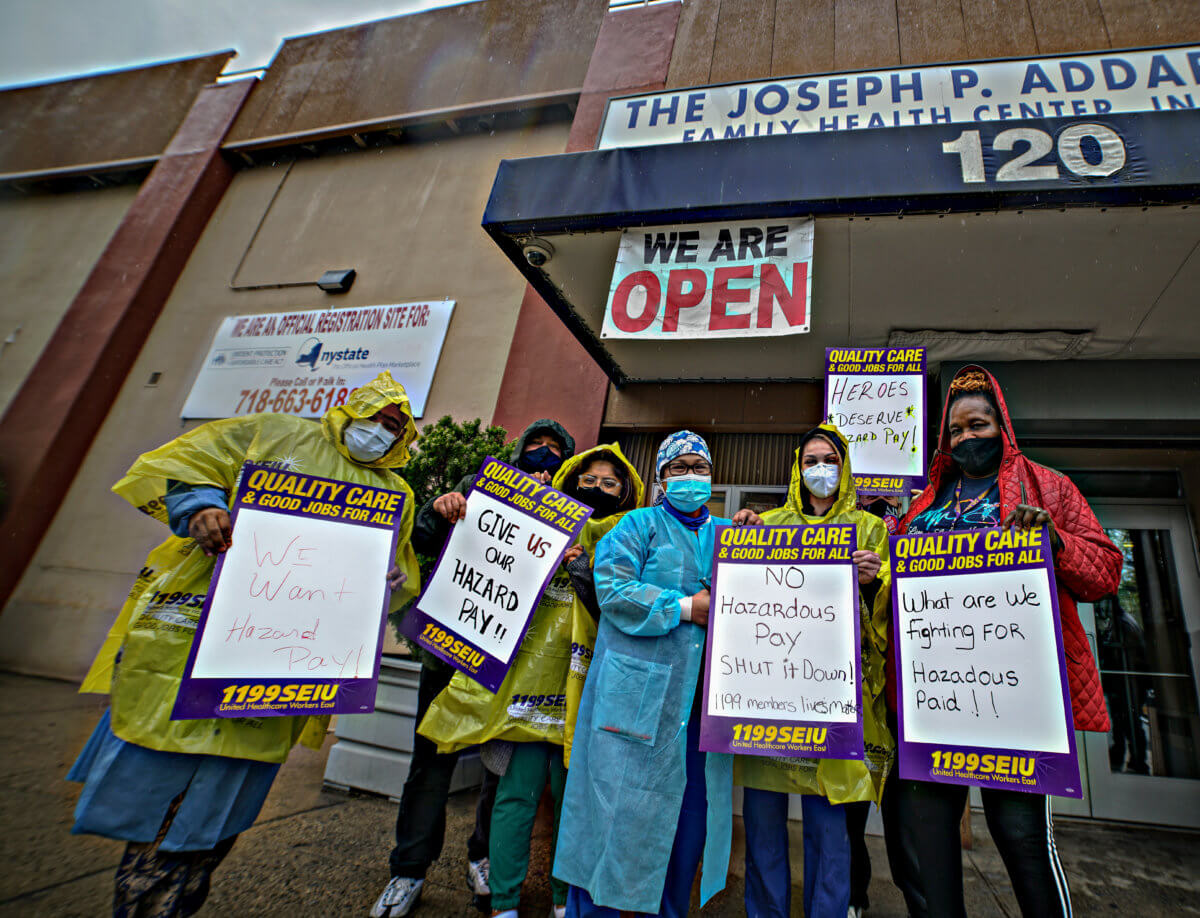
Marc Intrieri, a front desk clerk, described the terrifying feeling of risking his life while also having a family at home waiting for him, which was made far worse since he says he was not provided with PPE, despite being the first one to greet visitors as they entered the building.
“I put on half of a t-shirt for a mask, a hoodie, and a baseball cap because we didn’t have PPE—my hands were literally shaking because I didn’t know what to do,” Intrieri said.
By standing in solidarity around Queens and Brooklyn, these essential workers are hoping their pleas will be heard and they will be able to receive the hazard pay they are requesting.
After reaching out for comment, a representative from Joseph P. Addabbo Family Health Center provided amNewYork Metro with the following statement:
“Despite our disagreements, we appreciate that our employees have the right to express their opinions. Picketing during the employees’ time off or on their own time is their absolute right and we fully support that. The Joseph P. Addabbo Family Health Center (JPA) has been operating in consideration of the 1199 Collective Bargaining Agreement and will continue to negotiate in good faith. As JPA has expressed on many occasions throughout the pandemic, we surely recognize and appreciate the hard work and dedication all our Addabbo staff has demonstrated to provide essential healthcare for our patients and our community,” the statement read.
